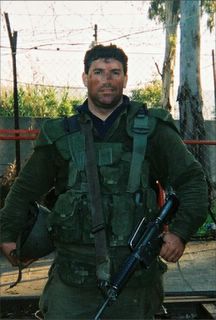Israeli military and political leaders have acted wisely in the planning and execution of this operation. They have clearly learned from mistakes made during the 2006 conflict with Hezbollah, but Israeli leaders seem to be on the verge of missing the opportunity to achieve a strategic victory – to end Hamas rule in Gaza and eliminate its military organization.
Contrary to popular opinion, there are military solutions to political problems. The US military surge in Iraq created the conditions for stability and political progress in Iraq. Likewise, the continuation of the current IDF operation in Gaza will create conditions for political progress between Israelis and Palestinians. Ironically, the calls to stop fighting and start talking will lead to further bloodshed – and not just between Israelis and Palestinians. The strongest voices in favor of a ceasefire are from countries that are thousands of miles away from the actual conflict. Those neighboring governments most affected by Hamas rule over the Gaza Strip – the Palestinian Authority (PA) and Egypt – are not nearly as keen about the ceasefire and have both been very critical of Hamas.
For the PA, the internationally recognized government and leadership of the Palestinian people, Hamas is the organization that removed it from power in Gaza by way of a military coup. During the first day of the Israeli operation, a leading member of the PA stated that they would be ready to take control of Gaza if Israel dislodges Hamas. For Egypt, Hamas is an armed off-shoot and strong supporter of the Muslim Brotherhood, the Mubarak regime’s primary political competitor. And all Sunni Arab regimes considered moderate by the western world – from Saudi Arabia and Jordan to Bahrain – would view the destruction of Hamas as a valuable blow to the growing Iranian Shi’a threat.
The French ceasefire proposal would actually ensure the survival of an organization that is officially designated – by the French, the European Union, and the United States – a terrorist organization.
Even a brief ceasefire provides Hamas with time to reorganize, plan, reassert control over Gaza, and ready itself for future attacks. Hamas will not be satisfied with being the de facto rulers of Gaza. The West Bank -- where analysts believe Hamas would already have control if it were not for the Israeli military presence in the area – is next. Future attacks on Israel are assured and attempts to destabilize moderate regimes like Jordan and Egypt are likely.
A ceasefire only postpones the inevitable conflict between Israel and Hamas. Better for Israel to finish off Hamas now than wait until later, when Hamas has become more powerful – politically and militarily. A ceasefire under current conditions would greatly enhance Hamas political clout, just as it did for Hezbollah. And no matter what controls are discussed, Hamas will re-arm.
Given the recognition by foreign governments that Israel is justified in its determination to neuter Hamas military capabilities and the fact that the destruction of Hamas is also in the vested interest of Israel’s Arab neighbors, Israel has the legitimacy required to replicate the successful strategy of Operation Defensive Shield.
As with Operation Defensive Shield in 2002, Israel should call up an additional 20,000 reservists and deploy them alongside 15,000 members of its standing army. Together, these ground forces will be able to rapidly dominate Gaza. Once Hamas is removed as a threat, the PA will immediately assert itself as the legal authority to administer the rebuilding of Gaza. Arab nations like Saudi Arabia and Western donor nations will welcome PA control over Gaza and will donate funds to enable reconstruction. The PA would not reject the opportunity to regain control over Gaza because of the perception that it relied on – and therefore would become associated with -- an Israeli military operation to achieve this goal. The desire to be the sole ruler of all Palestinian people again would override this concern and the PA would counter-balance this perception by its statements and actions. No one will mistake the PA for an Israeli surrogate – in many ways this type of arrangement between the PA and Israel in the West Bank today.
While the PA military and police forces – especially those trained recently by US General Jones – assert control over Gaza, IDF forces would need to continue conducting pinpoint operations to ensure that Hamas is unable to reconstitute itself. As with the West Bank today, Israeli intelligence and infantry units would conduct these ongoing counter-insurgency operations while the PA administers the day-to-day life of the Palestinian civilian population, including coordination with Israel to open the border crossings. The Israeli military operations would be continuous, but they would not necessarily require a base of operations with Gaza once PA forces enter.
To ensure the legitimacy of the PA, planned elections for 2009 should go ahead, but with one small change. Organizations that fail to meet the international standards for a Palestinian government – the willingness to accept prior agreements signed by the PA, the recognition of Israel, and the renunciation of terrorism – will not be able to participate in Palestinian national elections. This will eliminate Hamas from the process and ensure that the current PA leadership the opportunity to finalize a peace agreement with Israel and significantly improve the lives of the Palestinian people.
The cost in Israeli lives to dismantle Hamas and essentially liberate the Gaza Strip for the Palestinian Authority may be high. As a reserve soldier who would likely participate in that operation, I believe that the long-term security gained for both Israelis and Palestinians would justify the cost.
If instead, Israel and the international community revert to policies that have consistently failed in the past, we will have missed a historic opportunity to create a catalyst for peace, will weaken the position of moderate Arab nations, and strengthen the determination of Islamic radicals to confront the West.
Labels: Gaza, IDF, Israel, Israeli Military

